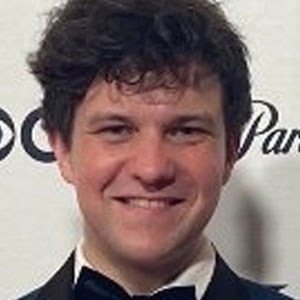Review: Sunset Boulevard in Concert (Curve Leicester – online)
Andrew Lloyd Webber, Don Black and Christopher Hampton’s musical is brought to life in a hybrid filmed experience following the live show’s cancellation
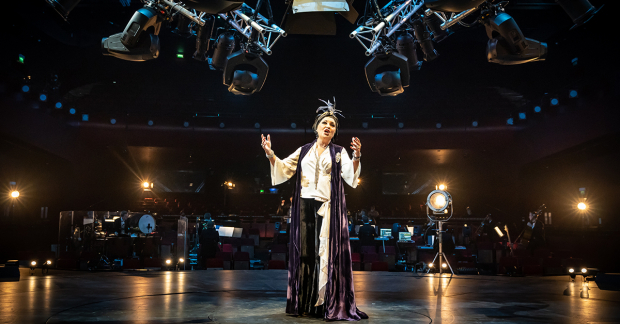
© Marc Brenner
If someone had told me last year I'd be rounding off 2020 watching a filmed version of Sunset Boulevard then I'd have been imagining that the long-awaited movie adaptation of Andrew Lloyd Webber, Don Black and Christopher Hampton's musical (based on the 1950 award-winning flick of the same name about the cut-throat yet vibrant world of Hollywood after the Second World War) had been shot on the sly. But as it turns out, something much more novel has been created in Leicester.
This version, filmed by the cast and creative team at Curve (who had their run halted by the rising swell in cases across the UK), is neither a film nor recorded stage production (the like you'd see from NT Live for example) but something altogether different – a hybrid experience that melds elements of the theatrical and film-ic into a mélange of musical richness.
Rather than having scenes placed in a set, the theatre itself becomes the shooting lot. Sequences do take place on Curve's distinct stage, but they also flood through the aisles, out over the circle, into back-stage areas or even onto gangways high above the auditorium.
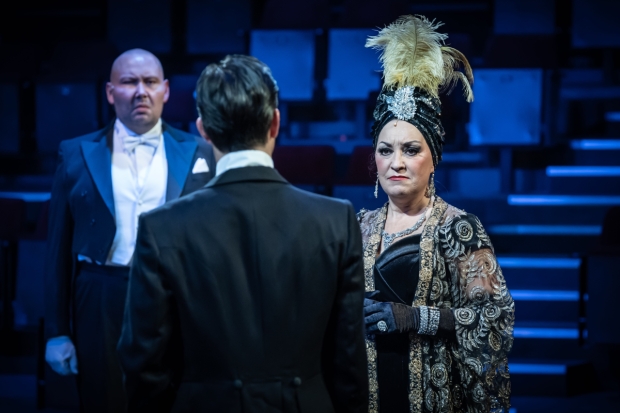
© Marc Brenner
Notably, camera teams, orchestras, tech teams and waiting cast members are never hidden from view – at one point you can even watch a gimbal operator hopping out for a tea break. Not only are the Curve team presenting an iconic musical, but they are also penning a love-letter to their gorgeous venue (sadly deprived of live spectators). You are simultaneously watching a story unfold while also observing the cogs whirring behind-the-scenes.
It takes a few minutes to adjust to the unorthodox set-free form but, by the moment characters are walking along corridors in the venue's roof, anyone with a shred of imagination will be able to get taken along for the ride.
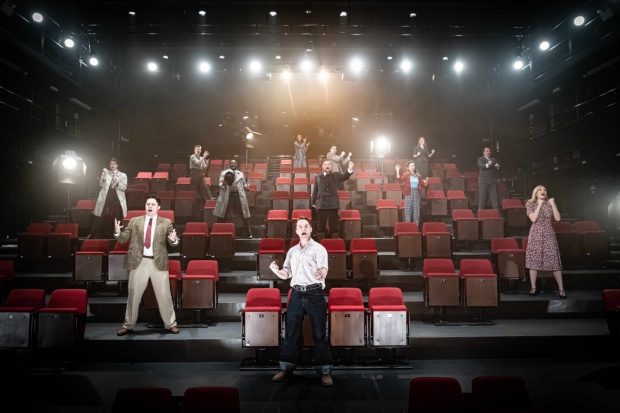
© Marc Brenner
Director Nikolai Foster uses his home venue with both visual and artistic flourish. When the tragic Norma Desmond (one of Lloyd Webber's most iconic heroines) appears in the venue's dress circle, she is surrounded by empty seats – an absent audience for a faded film star. Later, she emerges onto the stage – "Lot 17" from the musical – to perform "As If We Never Said Goodbye" while surrounded by a dormant lighting rig, slowly brought to life as if she is wishing it back into action. For the majority of the musical, cans stand silent in the stalls, heads drooped like solitary sunflowers in a gloomy field.
Foster also works collaboratively with filmers Crosscut Media – using a screen language to embellish Black and Hampton's script. A sudden death scene is delivered as a quick snap out of focus, while the cuts between wide, empty shots and mid-shots with characters centre-frame feel distinctly '50s. The team also indulges in a bit of noir-ish chiaroscuro, shadows falling across faces like something you'd find in The Third Man. There is also no way to understate how wonderfully a well-lit theatre works as a backdrop.
Lighting designer Ben Cracknell delivers a rich feast of colour, allowing red washes across the stage to gel seamlessly with the similarly-shaded seats in the auditorium. Sound designer Tom Marshall gives the piece a perfect mix – every note of Chris Mundy and Stephen Brooker's music, played by a 16-piece orchestra, as crisp as if you were listening to them live.
That's before we even start on the cast. Danny Mac as the down-and-out writer Joe Gillis drives the action, guiding gimbals through the auditorium as he navigates the tempestuous world of Los Angeles. It's a fantastic turn that is suitably smaller in scale given the intimacy of the camera – a failing creative staring into an abyss of empty words and emptier promises, smothering himself in Lucky Strike cigarette smoke.
Molly Lynch was a marvel in The Last Five Years (you can watch the streamed version of that show next month) and the same is true here as driven creative Betty Schaefer, with a tortured supporting turn from Adam Pearce as Max Von Mayerling, Desmond's servant and greatest fan.
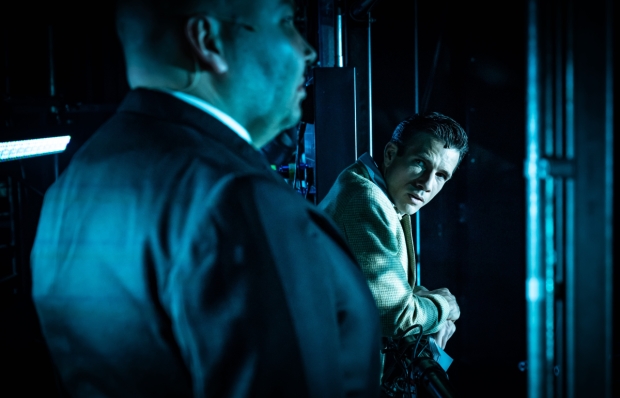
© Marc Brenner
Jones plays Desmond, the faded film star, with pomp and physical eccentricity – a turn that may feel more natural on stage but here is certainly slightly disarming. It's a canny decision from Foster however: we as an audience begin to underestimate her – just as Gillis does – like some ineffectual and cantankerous former performer with a crackpot obsession and a wad of cash. As we find out, reality comes crashing in like a series of gunshots. Oh and, every tune is note-perfect, in case that was in doubt.
The result, as you can probably tell, is a joy to watch. The team at Curve have certainly created a "hybrid" – something distinctly novel, neither film nor filmed stage show. Interestingly, a piece that may not have ever existed had the lockdown not come to pass. It may rankle the theatre purists but as a feat of ingenuity, but it stands unparalleled in both scale and success.

